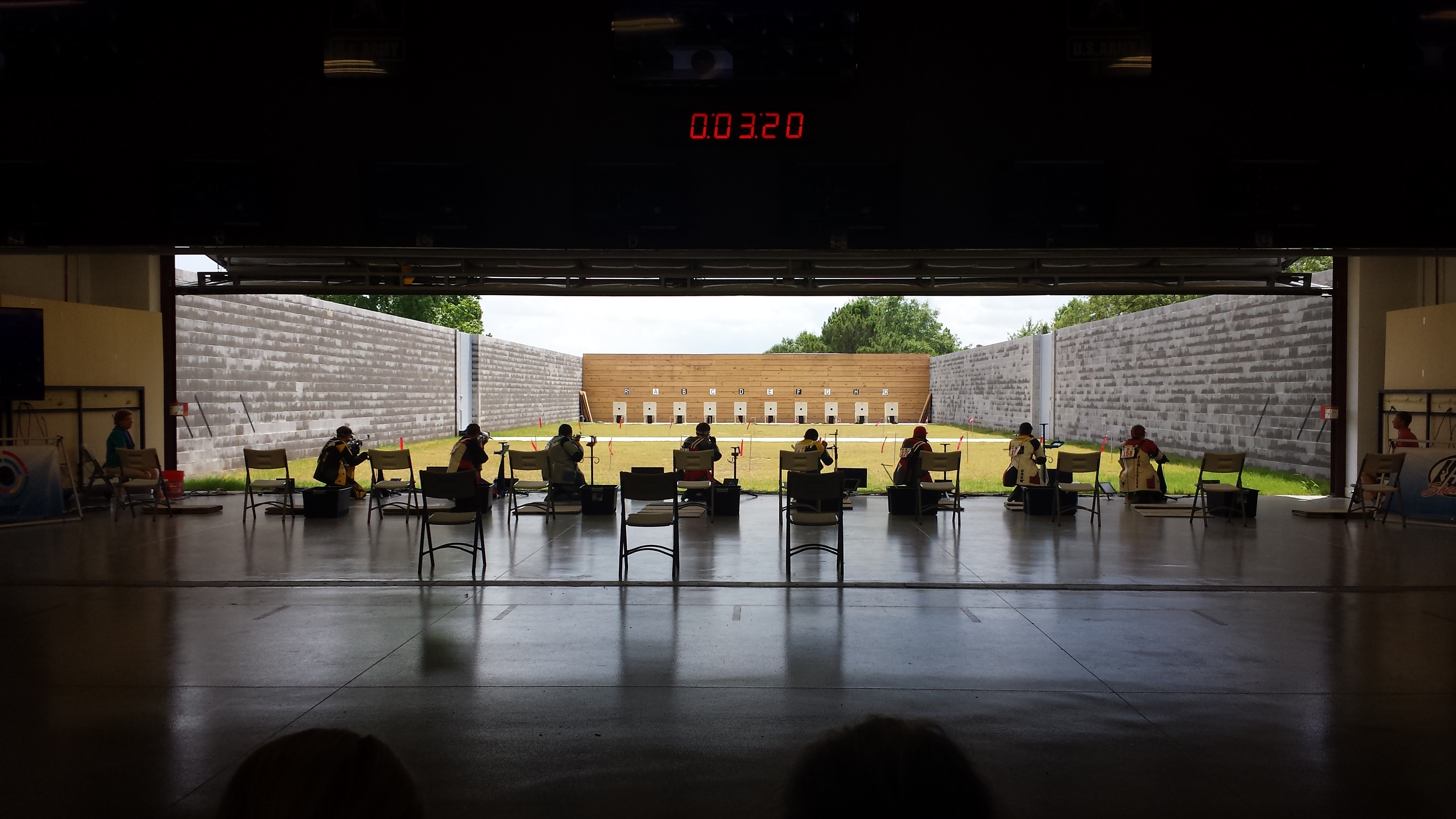Shooting: Back to the Basics
This summer is going fast. I just competed in the USA Shooting National Championships at Fort Benning, GA. Over the course of several days, the match consists of two days of air rifle at 10 meters, two days of .22 caliber (aka smallbore) rifle prone at 50 meters, and then two days of 3-position smallbore rifle, also at 50 meters. This is a very important match within the shooting community, it helps determine which shooters will compete internationally at matches including the Pan-American Games, World Cups and the summer Olympics (every four years). The best shooters in the country and sometimes other nations are there to compete. These matches are held to international standards with diligent range officers and equipment checks. Then in the finals, the top eight shooters of the day compete in a shortened version of a match to see who ultimately comes in first place. This match puts the pressure on, and it puts it on extra heavy.
This kind of pressure tends to throw people off. For junior shooters, the best shooters in the US plus coaches from the top university teams are watching. For everyone else, you have a real audience, you have to make sure you're following every intricate rule and on top of that, if your scores are there, you may be competing for a spot on the Olympic team. When the eyes of the best shooters in the country are watching, you have to keep your cool.
Generally speaking, pressure doesn't affect me too badly. Actually, it often drives me to do better. But even so, at this match, my scores tended to be either slightly below my average. It seemed one day I'd shoot a great score and then the next day, my shots would inexplicably spiral out of control (obviously still on target, I'm exaggerating a bit). Pressure affects everyone at some point. But once again, this coaching thing I've been doing has really helped me to figure out something about not allowing pressure to get to you: go back to the basics. Make the match a training session in itself.
In a good training session, a shooter generally picks one to three things to really focus on. This allows a shooter to remain focused on the process of his or her shots rather than the results of them (the score). The benefit of this is that now the shooter has a tangible, achievable goal of a physical or mental nature rather than an abstract goal of getting a good score. In order to have good scores, competitive shooters have to take good shots. For example, at this match I chose to test this theory by working on trigger control, follow-through and most importantly, not putting myself down during the match. Every shot I consistently squeezed the trigger, held my follow-through— and if the shot went some place I didn't want it to go— instead of telling myself what an idiot I was for taking that shot, I analyzed what happened in my process and then became determined to fix it on my next shot.
With this method, at the end of every day that I shot during this match, even if my scores weren't exactly where I wanted them to be, I left the line feeling accomplished. I fixed what I wanted to fix and that will only help me in future matches. I’m working for the long haul here and incremental improvement feels better and more stable than ever. Bring on the pressure, I'm ready.
Kelly Bogart is a Film, Television and Digital Media and Political Science double major at Texas Christian University. Bogart has seven years of shooting under her belt and currently competes on TCU’s Women’s Rifle Team. Bogart is traveling the country this summer as a coach teaching high school students across the country how to improve their shooting skills. In addition to coaching and competing, Bogart is a freelance blog writer working with The Mako Group.




